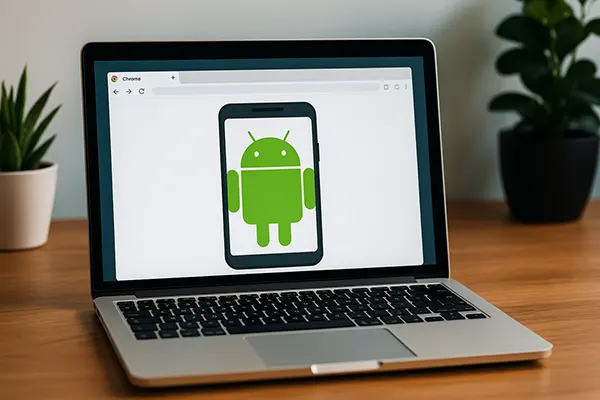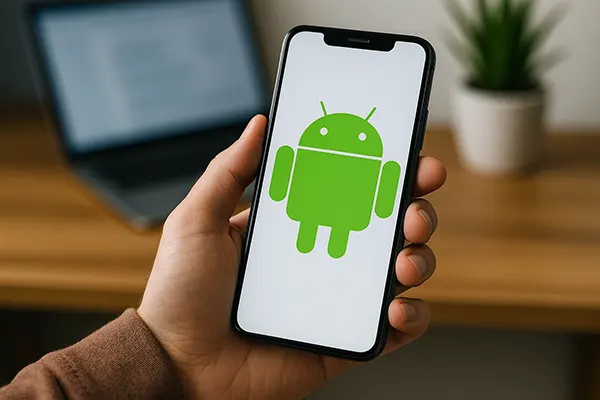Android App Emulation via Browser: ARChon and Similar Solutions

Running Android applications on a computer has traditionally required full-scale emulators such as Nox, XePlayer, or Droid4X. However, new browser-based solutions like the ARChon Runtime for Chrome are offering a lightweight and flexible alternative. Instead of installing a large emulator, users can emulate Android apps directly in Google Chrome through extensions. This approach has both advantages and limitations, making it important to understand when such tools are most effective.
What is ARChon and How It Works
ARChon is a custom runtime that allows Chrome to run Android applications packaged as extensions. Unlike conventional emulators, it does not function as a standalone program but rather integrates directly with the browser. To use it, applications must be repackaged into a compatible format, often with the help of additional tools. Once installed, apps can run inside Chrome on Windows, macOS, Linux, or ChromeOS, making ARChon one of the more versatile options for lightweight emulation.
The main benefit of ARChon is its simplicity. Instead of installing gigabytes of software, users can simply load a modified extension into Chrome. This is especially useful for developers who want to quickly test Android applications across different operating systems without setting up a full emulator. Furthermore, ARChon supports multiple apps simultaneously, giving users the freedom to experiment with different tools in a single environment.
However, the runtime is not officially supported by Google, which means that compatibility can be inconsistent. Some applications may work smoothly, while others may fail to launch or suffer from graphical glitches. This makes ARChon more suitable for light testing and simple applications rather than resource-intensive games or apps with complex hardware requirements.
Advantages and Limitations of Browser-Based Emulation
One of the strongest advantages of ARChon and similar browser-based solutions is accessibility. Users who may not have powerful computers can still run basic Android apps without heavy performance requirements. For example, productivity apps, messaging tools, and lightweight utilities are often perfectly usable. This makes ARChon appealing for casual use and quick development checks.
Another benefit is cross-platform flexibility. Traditional emulators may not support all operating systems equally well, but since Chrome is available on most platforms, ARChon extends Android app functionality almost everywhere. This allows developers to replicate user experiences across multiple devices without complex setups. It is particularly valuable for teams working on software intended for wide distribution.
Yet, performance remains a challenge. Running Android apps through a browser layer inevitably introduces some overhead, which can result in slower performance compared to native emulators. Advanced gaming, 3D rendering, or applications requiring precise hardware integration are often beyond the capabilities of browser-based emulation. Thus, while ARChon provides a convenient solution, it cannot fully replace traditional emulators for demanding use cases.
Use Cases for ARChon and Similar Tools
Developers are among the primary users of ARChon. Its quick setup process allows them to verify app behaviour across operating systems without dedicating significant resources to emulator installation. For developers working with cross-platform compatibility, browser-based emulators are an efficient way to simulate real-world scenarios. Additionally, because Chrome extensions can be deployed on multiple machines, teams can share testing environments more easily.
Students and educators can also benefit from browser-based Android emulation. For those teaching app development or mobile software testing, ARChon provides a straightforward and low-resource way to run examples in class without requiring each computer to install a full emulator. This makes it more practical in educational environments where system resources and time are limited.
Another common application is for lightweight personal use. Users who need access to specific Android apps, such as messaging services or note-taking tools, may prefer a simple browser-based runtime rather than installing a large emulator. While it will not handle advanced gaming, it is sufficient for tasks like checking notifications, running productivity apps, or trying out simple Android software.
Comparing ARChon with Traditional Emulators
When compared to full Android emulators like Bluestacks, Nox, or LDPlayer, ARChon is far lighter and less intrusive. It does not consume large amounts of disk space, nor does it require high-end hardware to function. For basic tasks, this simplicity makes it more appealing. However, in terms of performance and compatibility, traditional emulators still hold the advantage.
Another key difference lies in usability. Traditional emulators come with built-in support for app stores, custom controls, and advanced features such as gamepad compatibility. ARChon, by contrast, requires manual preparation of applications, which can be challenging for non-technical users. This limits its accessibility to more advanced users and developers who are comfortable working with packaged extensions.
Ultimately, ARChon and similar browser-based emulators are not meant to replace traditional solutions entirely but rather to complement them. They excel in lightweight scenarios, rapid testing, and environments where simplicity is prioritised over advanced functionality. For demanding tasks, however, traditional emulators remain the better option.

Future of Browser-Based Android Emulation
The concept of running Android applications directly in a browser is still relatively niche but shows significant potential. With the increasing reliance on web-based technologies and the expansion of Progressive Web Apps (PWAs), the boundaries between native and web applications are becoming less distinct. Browser-based runtimes like ARChon highlight the direction in which lightweight emulation might evolve.
One area of growth could be cloud-based Android emulation. Instead of running apps locally, users could access Android environments streamed directly from servers. This would reduce the performance limitations of browser-based tools while still keeping the lightweight advantages. Several companies are already experimenting with cloud-hosted app testing and streaming services, suggesting a possible future convergence.
At the same time, ongoing developments in Chrome and other browsers may improve the stability and performance of runtimes like ARChon. Better integration with hardware acceleration, support for modern APIs, and improved extension frameworks could make browser-based Android emulation more reliable and capable of handling a broader range of applications in the future.
Key Considerations for Users in 2025
By 2025, ARChon remains a valuable tool for developers and users seeking lightweight solutions. However, it is important to understand its limitations before adoption. Users looking for high-performance Android gaming or professional-level emulation will still find traditional emulators more suitable. On the other hand, those who prioritise simplicity and cross-platform flexibility may benefit from ARChon’s unique strengths.
Security is another factor to consider. Because ARChon is unofficial and requires third-party modifications to run apps, users should only download packages from trusted sources. As browser security has tightened in recent years, ensuring safe usage is essential to avoid vulnerabilities. Developers should remain cautious and verify the integrity of the extensions they use.
In conclusion, browser-based emulation through ARChon and similar tools is an innovative and practical approach for specific use cases. It is not a universal replacement for traditional emulators but represents an alternative path that prioritises accessibility and lightweight operation. For users in 2025, it provides a flexible option worth considering when full-scale emulation is unnecessary.
